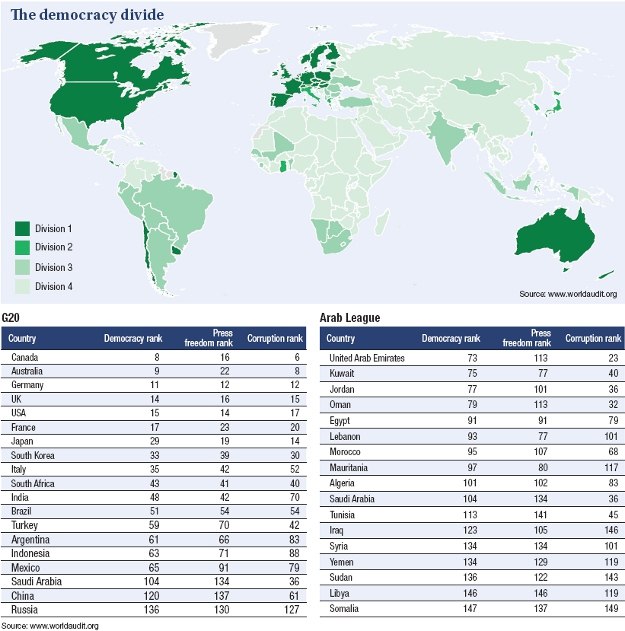Recent events across the Middle East and in some African countries – such as Côte d’Ivoire and Zimbabwe – have been a sharp reminder of the difficulty of establishing democratic systems where the basic components of democracy are either inadequate or open to gross abuse by an incumbent elite. Where autocratic rulers feel no pressure to change, they usually tend to resist democratic reform of any kind, at least until events spin out of their control and they are finally forced to capitulate to domestic pressure or (in some extreme cases) foreign intervention.
Democracy is not an automatic process and it is far from easy to measure. But it is possible to distinguish some of its vital elements – justice, freedom of speech, human rights and transparency – and on that basis to assess where countries stand in relation to each other. According to the data from World Audit (see map), over half the world’s nations are serious malefactors in terms of the above indicators. Another group of 30 countries are a mix: adopting some democratic norms and rejecting others. Only 38 countries can be described as fully democratic, an elite 28 in the ‘first division’ and ten more in the ‘second division’.






